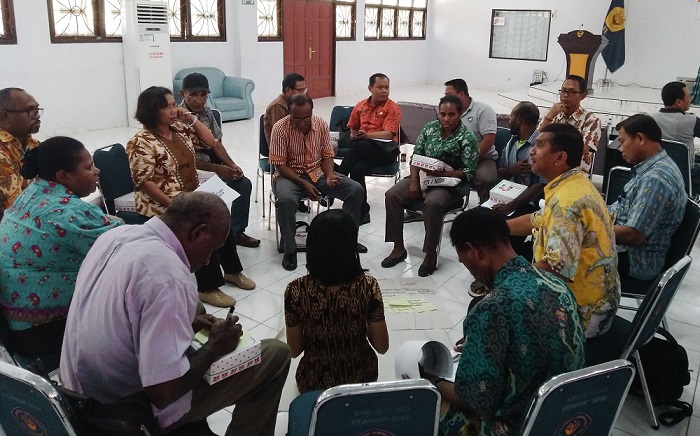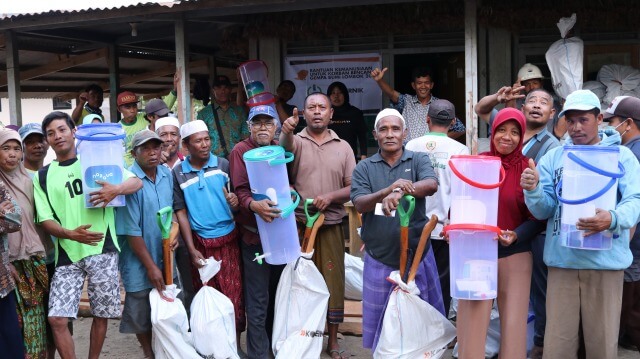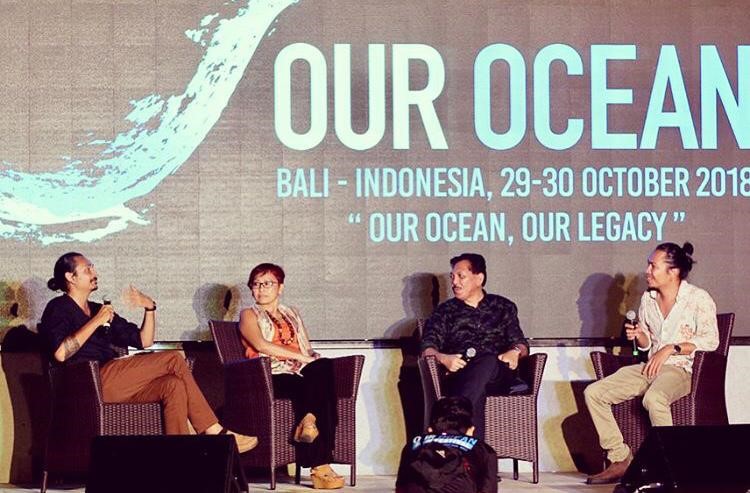From mismanaged plastic waste polluting oceans to economic disadvantages faced by smallholder farmers in remote areas, current social and environmental challenges are part of a vast, interconnected system of actors with different functions and goals. Solving these challenges, therefore, demands a coordinated and collaborative effort among all those involved. It cannot be the task of a single organization.
Kopernik fundamentally believes in collective impact. We realize that however promising and successful our own projects may be if we work alone, we are unlikely to significantly shift the needle in addressing major development challenges. Our partners are diverse in terms of size, expertise, and function. We strive to maintain a collaborative spirit that also leverages the unique skills of all parties involved. Solving today’s challenges requires a multi-dimensional approach, and each organization can bring their own strengths and resources to the table.

This year, for example, Kopernik worked with farmers’ groups to develop simple tools that help their daily livelihoods; partnered with the David & Lucile Packard Foundation to identify the unmet needs of smallholder farmers in West Kalimantan, Papua, and West Papua; and partnered with musicians to advocate for persisting development issues. We believe that this approach could allow for more promising solutions to be placed on the path for greater adoption, and thus, increase the opportunity for sustainable change on a systemic level.
But what does this mean in practice? In what way have cross-sectoral partnerships supported Kopernik’s mission?
Disseminating and Applying Experiment Findings
2018 marks the second year of Kopernik’s lean experimentation approach. Through a partnership with farmers’ groups in Bali and East Nusa Tenggara, Kopernik has now tested and compared three drying technologies that are appropriate for the last mile. Sharing ideas and findings is an important step in ensuring that impactful solutions are accessible to communities in need. This is why we have compiled insights from the drying experiments, including publishing a manual on how to build a solar dryer for other organizations and farming communities to implement.
It is with the same collaborative spirit that we held our Unmet Needs report dissemination workshops in West Kalimantan and Papua in late July. With the support of the David and Lucile Packard Foundation, Kopernik published the 2018 Unmet Needs report that highlights the challenges faced by smallholder farmers in West Kalimantan, Papua, and West Papua. We are now partnering with local facilitators and farmers group in those locations to test and develop potential solutions, based on the findings of the Unmet Needs report.
Responding Rapidly to Emergency Relief Efforts

Indonesia was struck by two major disasters this year, claiming a death toll that reached thousands and forcing hundreds of thousands to live in temporary accommodations. In early August, a series of earthquakes ranging 5.0-7.0 in magnitude struck the island of Lombok. Thanks to the support of crowdfunding donors and other partners such as CARE International Indonesia, the French Embassy of Indonesia, and Signify Indonesia, Kopernik was able to provide critical supplies such as reconstruction kits, hygiene kits, and solar lights to affected families.
Less than two months later, in late September, a 7.4 magnitude earthquake and tsunami of 6-meters devastated parts of the Central Sulawesi province. The disasters crippled communication networks and electricity in Palu, Sigi, and Donggala, hindering coordination efforts to deliver aid into the area. Kopernik worked with Mosintuwu Institute, a trusted local partner from a past technology distribution project, and delivered solar lights and water filters within the initial few weeks after the disasters as well as supported a network of 91 public kitchens in the affected areas.
Reaching Broader Audience Through Creative Partnerships

Social progress does not occur in a vacuum. For ideas and solutions to be adopted and sustainable, we realize that the greater public must be informed and engaged to take action. In the past year, Kopernik has partnered with artists and musicians to reach a broader audience and promote our ideas and findings. These creative partnerships have allowed us access to influential figures who can amplify social causes at a wider level.
For example earlier this year, Kopernik partnered with Navicula and Erick EST to produce a music video of Navicula’s ‘Terus Berjuang’ (Keep Up the Fight). The song and music video was used as a platform to highlight the issue of energy poverty in Indonesia’s eastern regions as well as the efforts of community activists to bridge that gap.
A project we’re excited about is Pulau Plastik, an educational video series in partnership with Bali-based Akarumput that aims to raise awareness on Bali’s plastic waste problem. Hosted by Navicula frontman and environmental activist Gede Robi, the initiative seeks to utilize media and popular culture in catalyzing better waste management practices at a community level.
Partnerships with players from different sectors grounded by a shared goal of collective impact have been a key component of many of Kopernik’s achievements in 2018. As we prepare for the new year, Kopernik will continue to engage different actors towards the common goal of finding practical solutions that address today’s social and environmental problems. Stay tuned to hear more exciting projects in 2019!



